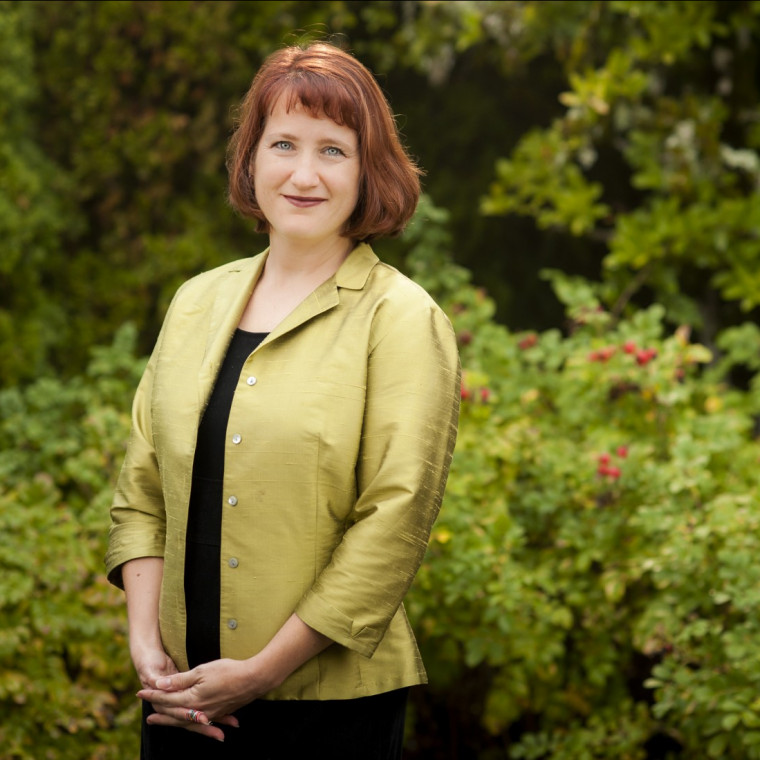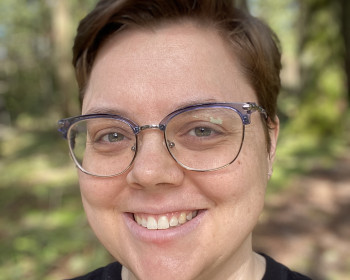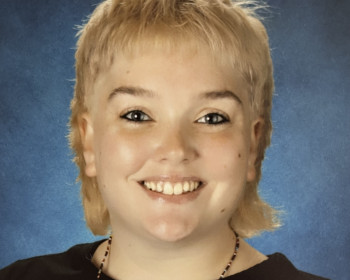Meet new professor Alicia Roberts Frank
Open gallery

Alicia Roberts Frank, a new assistant professor of teacher education and the Special Education Program Director, joins Lewis & Clark after teaching and mentoring students with disabilities from first to twelfth grade, teaching at SUNY Plattsburgh in the undergraduate elementary-education program and the graduate special-education program, and serving with the Peace Corps as an English teacher in Morocco. She specializes in teaching students with dyslexia and other reading disabilities. Patience, a virtue steeped in Moroccan culture, fuels her enduring belief that students from every ability level and background can succeed.
What insights did you gain from your work with the Peace Corps in Morocco?
The biggest thing that Morocco taught me was patience. American culture is very much based around giving up on things. If it’s too tough you give up. In Moroccan culture you don’t give up on things. Working with the Peace Corps, I lived with two Moroccan women. Every time I had a cultural conflict I couldn’t get away from it. There were so many times I wanted to move out and live on my own, but all my Moroccan friends and neighbors said, “just wait.” And they were right. I learned a lot about relationships and how to make things work. There is a Moroccan expression: “Little by little, the camel goes into the pot.” That’s how I try to approach things. I haven’t really been stressed since I’ve arrived Lewis & Clark.I’m just taking things little by little.
What led you to a career focused on special education?
I never thought that I would be in special education. I went to a very small school where we didn’t really need it. There were 11 in my graduating class, so teachers could easily differentiate between all the different learning levels. In elementary school I knew there was a special educator, but I never knew what she did — it just wasn’t a part of my reality — not even in my teacher-training programs. I look back at that now and say “that’s a problem.”
When I finished my master’s I was hired by a school for children with dyslexia. It opened my eyes to all the things that could go wrong in the learning process. That’s what drew me to working in special education. Advocacy and equity have become very important, and pushing for full inclusion in every way. Any child can do anything that he or she really puts his or her mind or heart to.
What resources can schools provide to promote more inclusive environments?
There are some advantages to having a separate school for children with disabilities. They can feel safe; they can be themselves. If they’re in the same school as everyone else but in a segregated classroom, that’s where you have problems, because they go to that room and everyone else knows where that room is. If they’re going to be in the same building I think they need to be included as much as possible. The real world is not segregated. Making inclusion a reality for all students is one of my crusades.
How would you describe your first encounters with Lewis & Clark students and what do you hope will be their impressions of your class?
I find them to be eager and open-minded. They seem to have a lot of experience — even though they don’t think they do — with students with special needs. The biggest messages I hope they will take away are that everyone can learn and to never give up on students, to never discount them or believe they are somebody else’s problem. All teachers should take ownership for every child, and should reach out and care about everyone’s advancement. I hope they will be engaged by the stories of children who have succeeded despite what others would perceive as obstacles. I would encourage them to not give up on anyone.
What activities have you sought out with your family in the Portland area?
I have two small children so I don’t get out to restaurants much. But I have been impressed with the food. So far I really haven’t had a bad meal. Yes, I’ve been to Voodoo Doughnuts. We do things like the children’s museum, the zoo, and OMSI. I enjoyed OMSI a lot.
More Teacher Education Stories
Teaching is located in room 402 of Rogers Hall on the Graduate Campus.
MSC: 14
email lcteach@lclark.edu
voice 503-768-6104
fax 503-768-6115
Department
Teaching, School Counseling, and Leadership Studies
Chair
Mollie Galloway
Elementary Program Director
Linda Griffin
Secondary Program Director
Liza Finkel
Administrative Specialist
Shanta Calem
Teaching
Lewis & Clark
615 S. Palatine Hill Road MSC 14
Portland OR 97219

